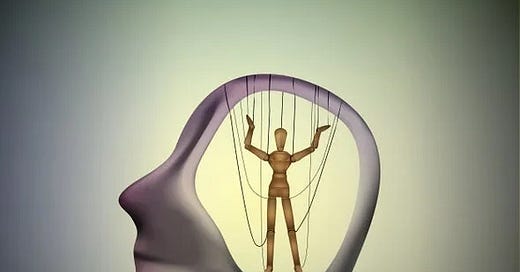“My brain made me do it”
Denial of free will is a a philosophical absurdity, and it is also bad physics
Of all the debates in the philosophy of science, the debate over free will is the silliest. I know that I have free will before I know anything else. I know who I am. I know what I can decide and what I can’t decide. I know what is within my control and what is outside my control. I know these things without any scientific argument, without having to resolve the “hard problem”, without doing experiments with brain scans.
We must believe in free will. We have no choice.
— Isaac Bashevis SInger
Singer got this one just right. Free will is non-negotiable. It’s part of the human condition. It’s something that Kant would have called a synthetic a priori, i.e., it is not a tautology but a statement about the real world in which we live (“synthetic”) but we know it from the get-go, without having to consult the outside world (“a priori”).
I just finished reading Quantum Theory and Free Will by Henry Stapp. The theme of the book is that quantum mechanics has a natural place in it for free will, and that scientists who argue that free will is an illusion (let alone consciousness itself as illusion) are not only defying a deep intuition about who we are, they are also reverting to a pre-quantum, 19th century view of physics.
Briefly, here are three stories from quantum mechanics, demonstrating that free will has a basis in physics.
First, the logic of QM requires both physical systems and observers. What is an observer? That has been the subject of debate from the beginning; but one thing we know is that it can’t be a physical system. All the founding titans of quantum theory hinted at this — Heisenberg, Schrödinger, Bohr, Pauli — but it was von Neumann who said it explicitly, in your face: consciousness is what we know first; consciousness is our primary identity — consciousness is the obvious candidate to play the role that QM requires as “observer”.
(Stapp acknowledges and bemoans the fact that most physicists today have abandoned this tradition for the 19th century idea that physical reality is the only reality, and they try to identify the “observer” with decoherence. The very idea is incoherent.)
Second, in the quantum world “measuring” implies “changing”. Our free will decides what to measure, and a clever choice in this regard can guide a system along a chosen path toward a desired outcome. (This is called the Inverse Quantum Zeno Effect.) We have all seen newborn infants flailing, uncontrolled, trying to figure out how to make their arms and legs do their bidding. Once we know about the IQZE, it is natural to imagine a soul, a consciousness that exists in a res cognitans outside the physical world, taking up residence inside a body in order to have senses and agency in the physical domain. Souls come into a baby’s body with feelings and desires and ambitions, and learns via biofeedback to gain control of the nervous system with IQZE.
Third, Robert Jahn and Brenda Dunne ran a lab in the basement of the Princeton Engineering Dept and for 28 years they ran experiments demonstrating that human intention could influence quantum behavior with no physical intermediary. Later in the program, they even did a proof-of-concept experiment that a human mind might learn to operate a robot in this way.
People say that quantum mechanics is so absurd that no one can make sense of it. The truth is that the determinism of classical (pre-quantum) physics is a grotesque distortion of our fundamental human sensibilities, from which QM rescued us. Physics needed QM in order to align with common sense.





"Do you believe that you have freedom? Do you believe in creativity? If so, you have to reject the obtuse belief in an omniscient, omnipotent God. And you have to reject the dogma of scientific materialism. Then you have to find your way to another vision that leads to human flourishing, or beyond that to a superhuman race that has as its destiny conquest of the entire cosmos."
— Jason Jorjani
This is a wonderful explanation of free will as something obvious and therefore unquestionable. Unfortunately, the incorrect interpretation of Libet's experiment has led people to conclude that there is no free will and that decisions are made in brain circuits before the subject is aware of them. Consciousness is supposed to be "informed" a posteriori about the decisions made in the brain. Such was the interpretation of the observed jump in the "readiness potential" a fraction of a second before the subject became aware of her choice. In the book "The Grand Biocentric Design: How Life Creates Reality" (BenBella, 2020) (by Robert Lanza and Matrj Pavsic, with Bob Berman), we discuss---among many other things---the Libet's experiment and demonstrate that does not contradict the concept of free will.